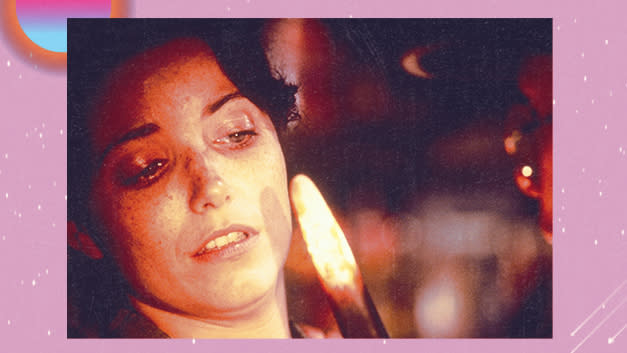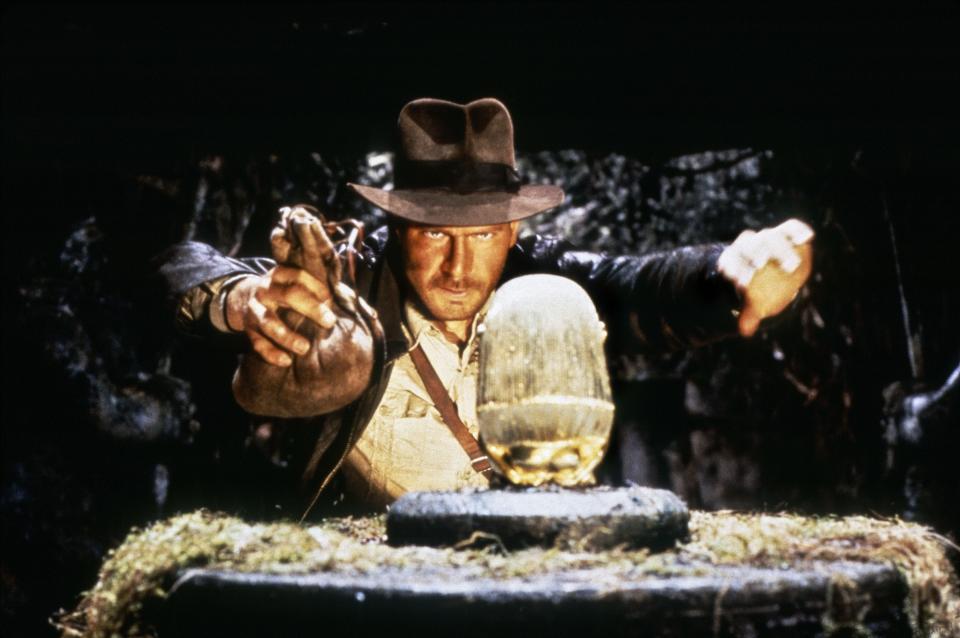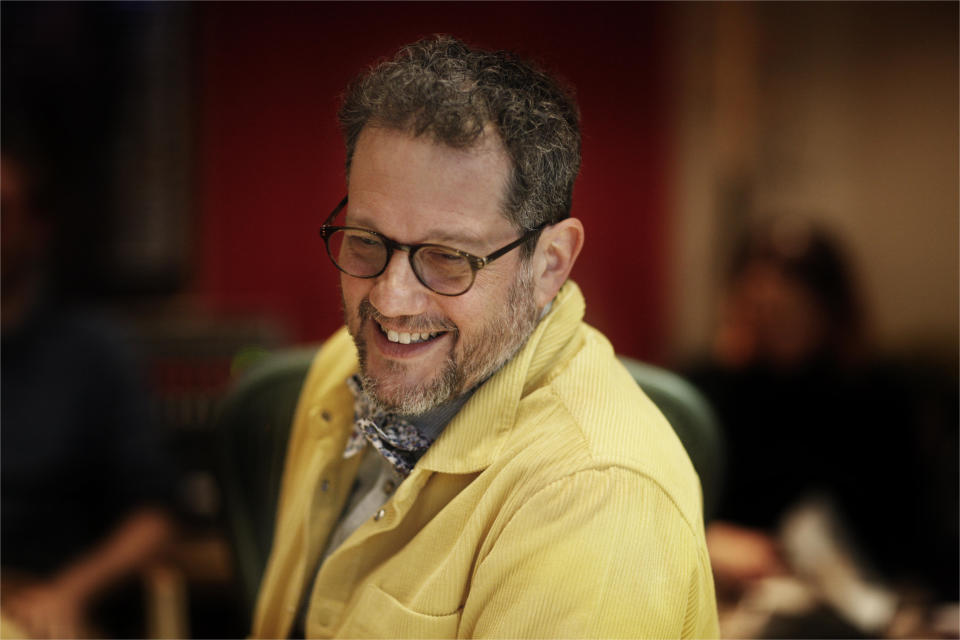John Williams’ Legendary ‘Raiders of the Lost Ark’ Score Taught ‘Up’ Composer Michael Giacchino the Craft
- Oops!Something went wrong.Please try again later.
- Oops!Something went wrong.Please try again later.
- Oops!Something went wrong.Please try again later.


For Oscar-winning film composer Michael Giacchino (“Up”), Steven Spielberg’s “Raiders of the Lost Ark” is the defining movie of his life. It’s what sparked his love of movies and film scores, and what started him on his path to becoming a successful composer, all thanks to John Williams’ rousing, orchestral masterpiece.
Giacchino, who most recently scored Taika Waititi’s “Next Goal Wins” and Juan Antonio Bayona’s “Society of the Snow,” and is prepping a remake of the giant ant movie “Them!” as his directorial feature debut, first saw “Raiders” as a 13-year-old in New Jersey when it opened the summer of 1981. He went back about a dozen times and even sneaked a tape recorder into the theater so he could replay it every night. He also had the soundtrack on vinyl and later bought a second LP containing score, dialogue, and sound effects.
More from IndieWire
“I think that record, in particular, was instrumental in teaching me how those three things can and should live together in one space,” Giacchino told IndieWire. “It was a time when mixing for film was at its height in terms of clarity and storytelling. Go back and listen to ‘Raiders’ and you can hear every Ben Burtt effect, you can hear all of John’s music. It all works together beautifully. I had this incredible education just because of this listening experience, and everything I did going forward was always compared and held up against those mixes from back then.”
Although Williams’ breakout score for “Star Wars” taught Giacchino about the emotional power of orchestral movie music and helped him understand the sound and impact of every instrument, “Raiders” offered a different outcome by emphasizing theme. This was a throwback to classical composing and a touchstone of Hollywood golden era composers such as Erich Wolfgang Korngold (“The Adventures of Robin Hood”) and Max Steiner (“Now Voyager”).
“This idea of creating a theme that belongs to this story and this story alone, and I’m going to bring in a new idea for every scene,” added Giacchino. “This is an old-school way of approaching film scoring, but it’s my favorite. And I remember so many of those melodies … in the basket chase, in the spider moment with all of those harmonics and strings and this creepiness. Or just in the opening with the oboe and the bassoon and the picado strings and the weird airiness that the strings were doing. To me, it was fascinating. I loved all of that, and it was like opening up a whole new world of music to bring in these sort of modernist techniques and meld them with a thematic and traditional classical background.”

The slow-building tension of the opening in the jungle has our immediate attention, and Williams deftly enhances the suspenseful mood with a cue that’s not overpowering. “John’s score grabs you from the second the movie starts, when the guys are wandering through the jungle, and it doesn’t let you go until the very end,” Giacchino said. “It’s setting the table for the mystery that’s about to unfold. And that opening cue does that so perfectly, easing us into the whole thing up to that shot where [Indy] turns and you see his face for the first time after using the whip to grab the gun out of the guy’s hand. That’s not even played as a heroic moment. It’s played as a very tenuous moment.”
Of course, the main theme, known as the “Raiders March,” is the most famous of Williams’ career. Spielberg requested a hummable march, which the composer delivered, evoking the spirit of the film’s globetrotting, World War II adventure, along with Indy’s (Harrison Ford) bravado. Then the director asked what else he had, and Williams played him a romantic melody (think “Now Voyager”) associated with Marion (Karen Allen), Indie’s badass love interest, that became a bridge during the full “Raiders March” suite.
“Marion’s Theme” was further developed as a lullaby, inspired by the second movement of Rachmaninoff’s “Piano Concerto No. 2.” “And Steven had them put together, so you’re uniting those two characters already,” Giacchino said. “You have to remember, also at that time, John would play it for Steven on the piano. There were no mock-ups. There was no digital way to create a version of it prior to recording it.”

The eerie “Ark Theme,” meanwhile, represents the third most important musical component, with its religious and supernatural connotations. The Ark of the Covenant essentially serves as its own character. “It’s almost like the Ark is standing between Indy and Marian and what they have to do in order to come together again,” Giacchino said. “If you use [the theme] in tandem with telling a story about the Ark, suddenly the whole story turns into a complete epic. Music has a way of making the image mythic.”
For Giacchino, some of the most memorable moments are the action scenes, such as Indy chasing the Nazi truck (carrying the Ark) on horseback. “There was no bigger thrill as a 13-year-old in that moment,” he said. “Because that’s when everything seemed lost and he’s still going, he’s not done yet, he’s going after that thing. And that determination, backed up by that score, is just one of my favorite moments in cinema.”
Giacchino also marvels at the way Williams exercises the main theme in different ways, even like it’s straining when Indy struggles. “You might just get the first few notes of the theme played in sort of a minor key or some dissonant version of it,” he said. “But the rhythm is there, so you understand that this is Indy under duress. Maybe I was a weird kid, thinking about all of this in my head, but I truly believe subconsciously that’s what’s going on when you write the way John wrote for a movie like ‘Raiders,’ helping the audience feel exactly what Indiana Jones is feeling. And that’s where you wanna be as an audience. So that’s always the goal of the composer.”
Best of IndieWire
Sign up for Indiewire's Newsletter. For the latest news, follow us on Facebook, Twitter, and Instagram.

